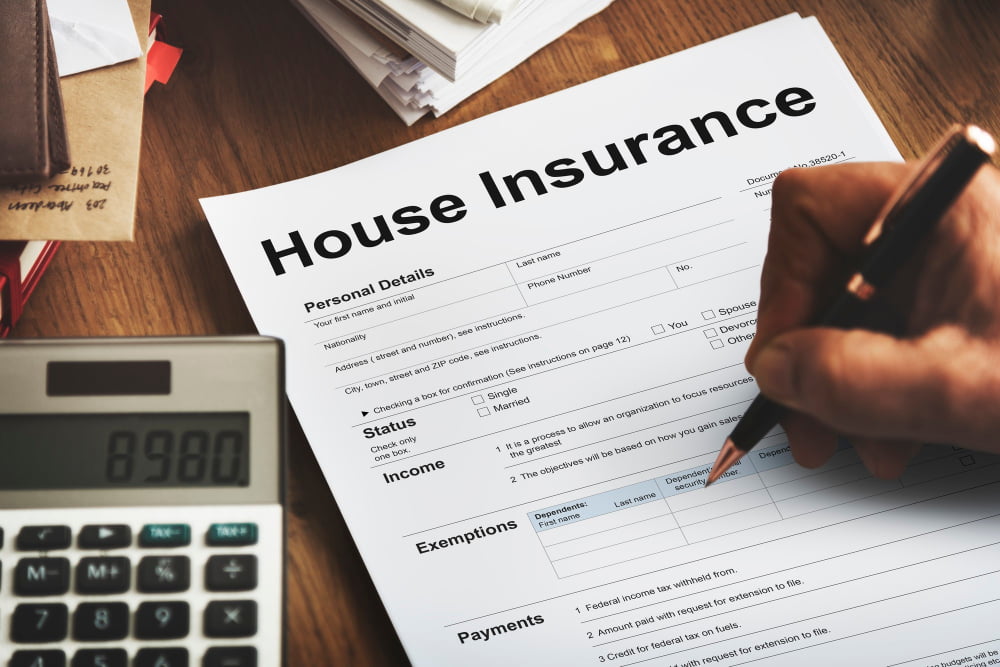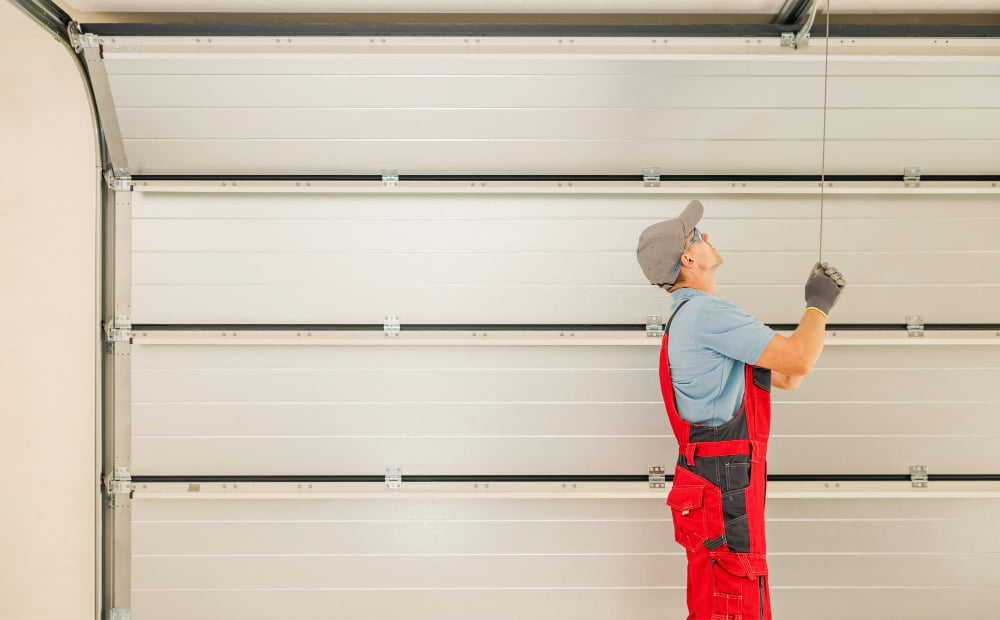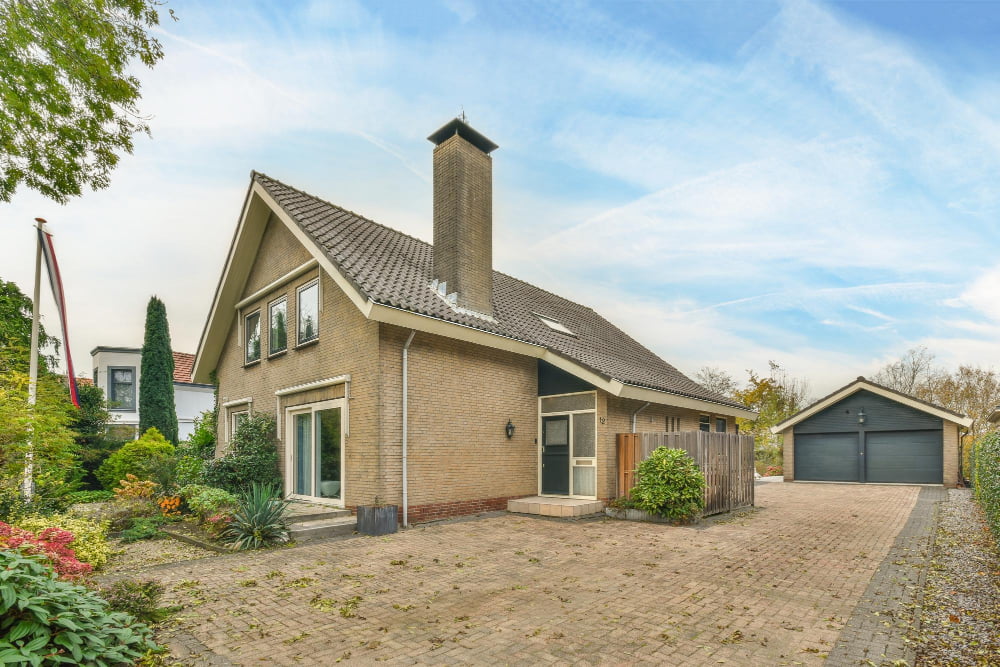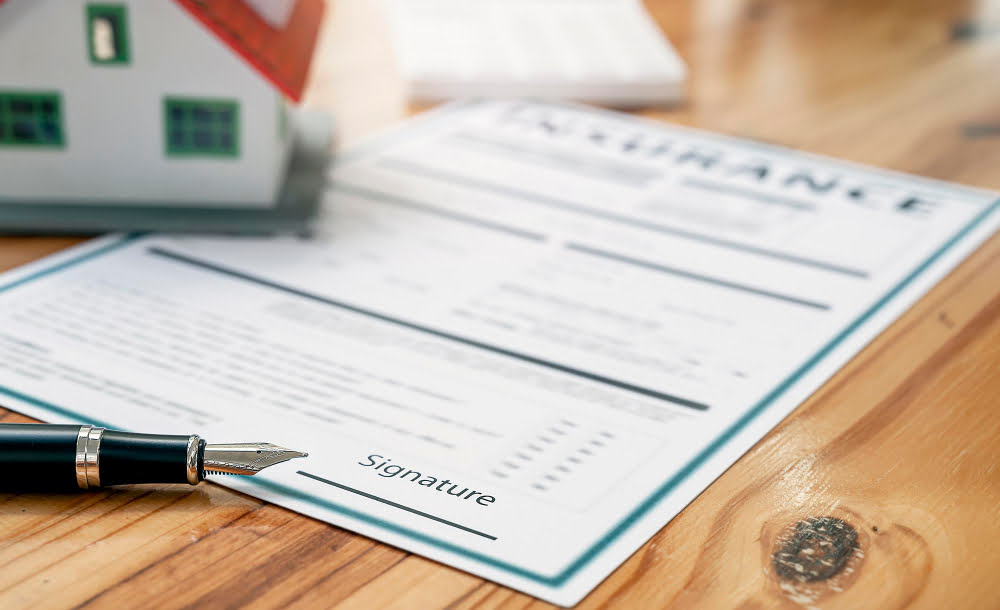Exploring whether home insurance policies typically cover garage door damages can provide homeowners with valuable insight for potential claims.
Whether or not your home insurance covers a garage door depends largely on the specifics of your policy and the nature of the damage. Generally, standard homeowners insurance policies do provide coverage for garage doors under the dwelling coverage portion of the policy, as long as the damage is due to a covered peril such as fire, vandalism, or certain weather-related events.
However, it’s important to note that if the damage is due to general wear and tear or lack of maintenance, it’s typically not covered. To understand the full scope of your coverage, you’ll need to delve into the specific details of your insurance policy.
This article will guide you through the intricacies of home insurance as it pertains to garage doors, helping you understand what’s covered, what’s not, and how to ensure your garage door is adequately protected.
Key takeaways:
- Home insurance covers garage doors if the damage is due to covered perils.
- Wear and tear or lack of maintenance is typically not covered.
- Damages caused by pests or deliberate acts are not covered.
- Attached garages are usually covered like the main dwelling.
- Upgrading the garage door can potentially reduce insurance premiums.
Types of Damages Covered By Homeowners Insurance

Commonly, homeowners insurance protects against unexpected or accidental incidents that could harm your property. This typically includes a host of perils like fire, lightning, windstorms, and hail. Additionally, insurance policies cover incidents like theft, vandalism, and damage caused by vehicles or aircraft.
Furthermore, damage due to falling objects is usually incorporated in standard homeowners insurance policies. This safeguards your property, including the garage, from structural harm caused by items such as tree branches or debris.
However, it’s paramount to remember that insurance coverage can differ significantly based on your specific policy and the insurance company. Therefore, reviewing your policy documents thoroughly helps you understand precisely what risks are insured.
Damages Not Covered By Homeowners Insurance

Standard homeowner policies generally exclude certain types of incidents. For instance, intentional damage, poor maintenance, or neglect are not typically covered. Any damage related to infestations of pests such as birds, rodents, insects, or any other creature is also not insured.
In addition to this, policies frequently exclude damages that result from war, nuclear hazard, or legislation (such as building codes) changes. Lastly, disasters classified as ‘Acts of God’ like earthquakes, floods, and other extreme weather conditions are often not covered unless specified in a specialized rider or separate policy.
In the context of garage doors, damages caused by any of these exclusions would also not be insured. Always take the time to carefully read your policy’s coverage limitations to avoid any unpleasant surprises.
Does Homeowners Insurance Cover Garage Door Damages?

In most cases, damage to a garage door is covered under a standard homeowners policy, but the specifics can significantly vary. The cause of damage plays a vital role in determining whether the policy will cover it or not. For instance, if the door is damaged due to natural disasters like storms or hurricanes, the policy typically extends to repair or replace it.
However, if the damage is caused by everyday wear and tear or lack of maintenance, the policy may not cover it. Deliberate acts causing a damaged garage door are also unlikely to be covered. Normal aging, rust, and mechanical failure fall under the homeowner’s responsibility.
Same goes for damage caused by pests such as termites, rodents, or insects. The assumption here is that pest infestation comes under the purview of routine home maintenance, for which the homeowner is responsible.
Vandalism is an exception. If someone maliciously damages your garage door, your homeowner’s policy is likely to cover the cost of repair or replacement.
It’s important to keep in mind that while policies may differ on some details, these are the general rules governing insurance coverage for garage door damages. Always read your policy details carefully or consult with your insurance agent to understand what is and isn’t covered.
Homeowners Insurance Coverage for Attached Vs. Detached Garages

It’s crucial to distinguish between attached and detached garages when considering insurance coverage. Typically, an attached garage, forming an integral part of the home, is well covered in most standard insurance policies just like the primary dwelling itself. If, for instance, damage occurs due to an insured peril such as a fire or a storm, the coverage often extends to repair or replace your garage door.
On the contrary, detached garages may often fall under ‘other structures’ coverage, which is generally set at about 10% of the total dwelling coverage. So, if your home insurance policy is for $250,000, the ‘other structures’ coverage, including your detached garage, would be $25,000.
Remember, each insurer may have their set of rules and exclusions, hence understanding the specifics of your individual policy is key. It’s recommended to discuss these details with your insurance agent to ensure your property and its appendages are suitably protected.
Factors Affecting Garage Door Insurance Coverage

Firstly, the cause of damage plays a significant role. Whether the door was damaged due to a storm, fire, vandalism, or an accident, greatly impacts the insurance response. It’s pivotal to note that wear and tear from aging or neglect isn’t typically covered.
Secondly, the type of garage impacts the coverage. Attached garages are usually under main dwelling coverage, providing better protection than detached ones, which fall under “other structures” in insurance lingo.
Thirdly, your policy type influences the coverage. An open-perils policy covers all risks except those explicitly excluded, while a named-perils policy only covers specified risks.
Lastly, your policy limits play a crucial role. These specify the maximum amount your insurance will pay for a claim. It’s advised to regularly review these limits to ensure they’re adequate to cover potential losses to your garage.
Remember, each policy varies. It’s essential to carefully review your specific insurance documents and consult with your agent to understand the inclusions and exclusions better.
Process of Filing a Garage Door Insurance Claim

Start by documenting the damage. Take clear photos or videos that capture the extent of the damage. Jot down the specifics about what happened and when.
Next, contact your insurance company, preferably through their customer service line. They will guide you on how to make your claim. You might be asked to complete a formal claim form or write a letter detailing the incident. Include all significant details and provide any supplemental documents they request such as police reports and estimates for repairs.
Additionally, you may want to consult an independent contractor to get a quote for repairs. This can provide a comparison point for the estimate your insurer provides and can be a key tool in negotiations.
After your claim is filed, prepare for an inspection of the damage by an adjuster from your insurance company. It’s important to make yourself available when they come to inspect the damaged garage door.
Remember to maintain open communication with your insurer during the claim process. This way, you stay updated on any changes in status or additional information needed.
Please note each insurance provider may have their own unique process and response time. Always adhere to the specific instructions provided by your insurer for a smooth and efficient claim process.
Reducing Homeowners Insurance Policy Costs Through Garage Door Upgrades

Upgrading the garage door can hold significant value, acting as a preventative measure and potentially lessening the insurance premium. Here are several ways to potentially accomplish this goal:
- Enhanced Security System: A stronger security system featuring advanced locking mechanisms and alarms can deter potential burglary, thus reducing risk.
- Material Quality: Opting for high-quality, durable materials can increase the longevity of the garage door and its resilience towards natural wear and tear or any potential external damage.
- Professional Installation: A properly installed garage door minimizes chances of operational failure or accidents, lowering the risk of damage.
- Weatherproofing: Making your garage door resistant to extreme weather conditions prevents potential hazards associated with storms or heavy snowfall.
- Regular Maintenance: Preventive care and timely repairs can keep the door operating smoothly, reducing the probability of abrupt, costly damages.
Investing in these upgrades presents your garage door as less of a liability, which can sway your insurer to offer slightly lower premiums, while also ensuring a safer, more durable setup for your home.
FAQ
Is an attached garage typically covered under a homeowners insurance policy?
Yes, an attached garage is typically covered under a homeowner’s insurance policy, specifically under Coverage A as it is considered part of the house’s structure.
Is garage included in square footage for insurance?
Yes, a garage is included in the square footage for insurance purposes, although it may be valued less than the main living spaces.
Does building insurance cover front door?
Yes, building insurance typically covers the cost of repairing damage to your front door.
Does USAA cover lightning strikes?
Yes, USAA homeowners insurance covers damage caused by lightning strikes.
Does homeowners insurance cover detached garage structures?
Yes, homeowner’s insurance typically covers detached garage structures, but the extent of coverage may vary based on the policy.
Will home insurance policies typically cover garage door malfunctions?
Most home insurance policies do not cover garage door malfunctions as they are usually considered general wear and tear, which is excluded from coverage.
In the event of a natural disaster, does homeowners insurance account for damage to garage facilities?
Yes, homeowners insurance typically covers damage to garage facilities caused by natural disasters, but coverage can vary based on the specifics of the policy.